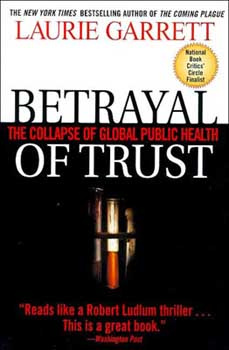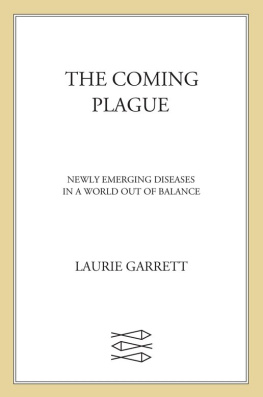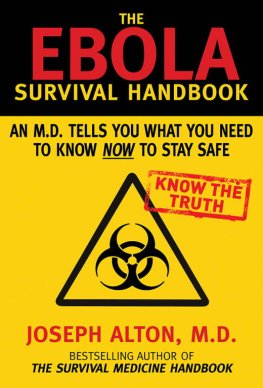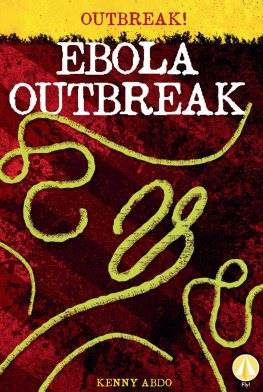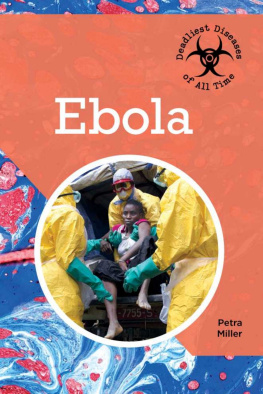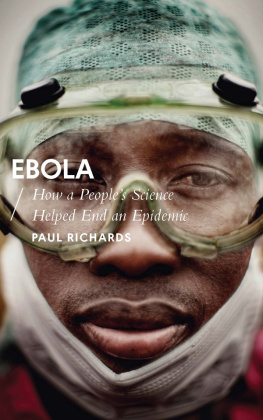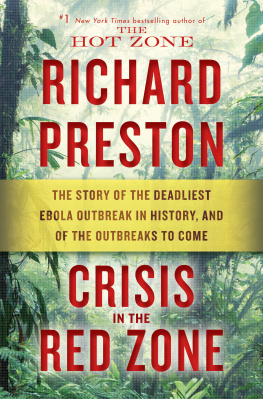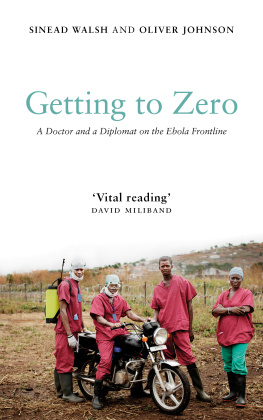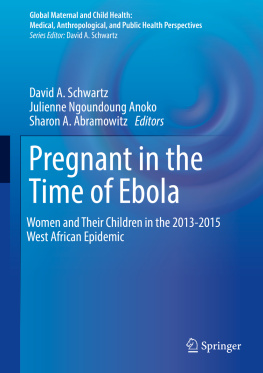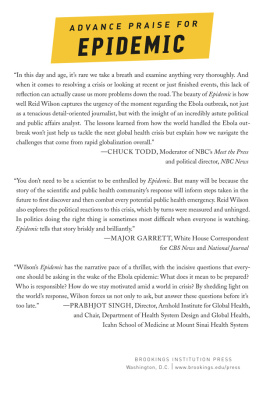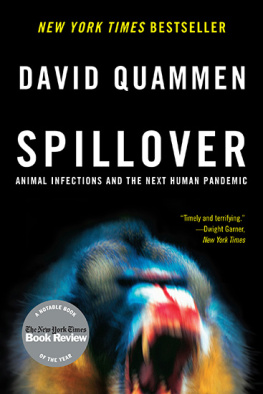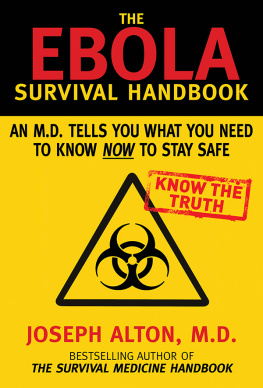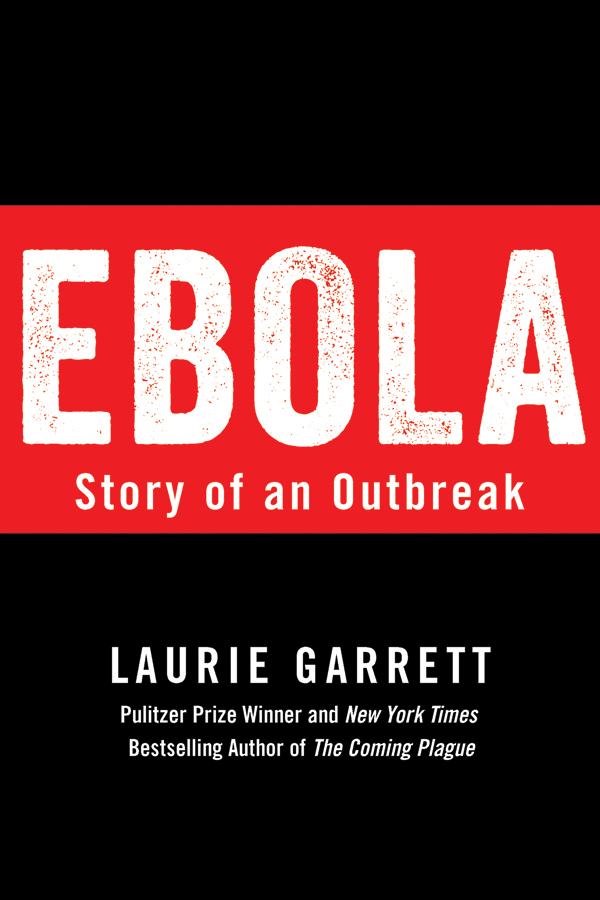Cover copyright 2014 by Hachette Book Group, Inc.
All rights reserved. In accordance with the U.S. Copyright Act of 1976, the scanning, uploading, and electronic sharing of any part of this book without the permission of the publisher constitute unlawful piracy and theft of the authors intellectual property. If you would like to use material from the book (other than for review purposes), prior written permission must be obtained by contacting the publisher at permissions@hbgusa.com. Thank you for your support of the authors rights.
Hachette Books is a division of Hachette Book Group, Inc.
The publisher is not responsible for websites (or their content) that are not owned by the publisher.
As I write these words Gallup has just released a poll showing that America is almost as fearful of Ebola in October 2014 as it was of the H1N1 swine flu in May 2009: Fourteen percent of Americans believe Ebola is likely to sicken them or someone in their family in 2014, compared to 20 percent who thought the same of swine flu in 2009. The finding is staggering, considering that at this moment just six Americans have contracted Ebola, all of them infected while living or working in the African nations of Liberia or Sierra Leone. In contrast, by the time Gallup conducted its 2009 poll about H1N1, more than 14 million Americans were already infected with the flu, most without realizing it.
Ebola, a virus named after a Congolese river, has conjured special respect since its discovery in 1976 in Yambuku, Zaire. As I wrote in my first book, The Coming Plague, the deadly disease was utterly mysterious back then, when its first wave washed over the remote town to claim the lives of 90 percent of those infected. The small international team of virus hunters who gathered in Zaires capital, Kinshasa, knew little about the strange disease except its horrible toll. Yambuku could only be reached via government planes and helicopters, and communication with the outside world was all but impossible. The scientists and physicians entered villages to find entire families sprawled inside dirt-floored huts, crying out in hallucinations, moaning in pain, and bleeding from every orificeblood that was filled with contagious viruses.
After the weary Ebola hunters isolated the new virus and stopped the epidemic, their work and the horrors they had witnessed became the stuff of epidemiology and virology legend. Among those in the infectious disease tracking community, the mere mention of Ebola was enough to conjure gasps of dread and nodding respect for the disease cowboys who dared in 1976 to confront the microbe.
Nineteen years later Ebola reemerged in Zaire, hundreds of miles away from Yambuku in the large southern town of Kikwit. It started during Christmastime 1994, when Gaspard Menga walked into the dense rain forest that marked the edges of Kikwit in search of wood that he could burn down to charcoal and sell as fuel. Sometime during his days camping in the forest Menga came in contact with an animal; nobody would ever know what type of beast or the nature of the contact. From that animal Menga unknowingly caught Ebola, carrying it inside his body as he trekked back into Kikwit with a lucrative haul of charcoal on his back. A few days later Menga was dead, and his family, having lovingly tended to the ailing man, surrounded his body and posed for a mournful photograph.
When I met the surviving members of the Menga family a couple of months later, the Ebola epidemic was soaring, having spread from the local hospital to far flung villages and clinics across a wide region. I stared for a long time at the faces in that photo, seeing in them loss, grief, sorrow, and the start of a grave epidemic.
As I wrote in Betrayal of Trust: The Collapse of Global Public Health, in which the main text of this eBook first appeared, the Kikwit epidemic afflicted a town of some 450,000 people who lived crammed together, house to house, in what amounted to little more than a giant village lacking electricity, running water, sewers, telephones, an airport, or more than a couple of paved roads. The battle against the virus was waged with primitive, almost fourteenth-century methods: gathering up the ailing and dead, quarantining the sick, palliative care using soap and water, and burying victims in mass graves. The fight was waged by a heroic band of local Red Cross volunteers, a handful of medical students, three European Mdecins Sans Frontires (Doctors Without Borders) physicians, and a group of two dozen scientists and epidemiologists from Zaire and a dozen other countries organized by the World Health Organizetion. Once the team was in place, the 1995 Kikwit epidemic was under control within three months.
Three years later I returned to Kikwit to see how the epidemics aftermath had affected the place, the people, and the culture. Zaires long-time dictator, Mobutu Sese-Seko, had died in 1997 in Moroccan exile, and the country suffered a short but brutal civil war. When rebels opened the vaults of the national bank they found only worthless Zaires notes: Mobutu and his family had looted the nation, stealing an estimated $5 billion in gold, gems, and foreign cash. The country had been poor in 1995, but now it was in a state of dire desperation. I could not have known as I walked the streets of Kinshasa in search of a travel agent to sell me a ticket to Kikwit that the country renamed the Democratic Republic of Congo would still be suffering from uprisings, wars, and brutal militias sixteen years later.
I found a flight to Kikwit, strapped atop an enormous crate full of agricultural tools in the hull of a WWII-era cargo plane. Remarkably, a uniformed flight attendant maneuvered among fellow passengers, also strapped to cargo, to serve Coke and cookies. And as had been the case in 1995, we landed on a grass soccer field, and I chose from a passel of hungry drivers my chauffeur for the duration of my visit.
As we drove over the rutted mud roads I eyed evidence of deterioration and worsened poverty. Children along the road held out their hands for food and shouted as they spotted my white face: Jai faim! Maman, jai faim! Aidez-moi, Maman! The shouts of grief that filled the air in 1995 had been replaced by cries of starvation.
When we reached the hospital that had served as the Ebola quarantine center, my heart sank. The generators and rain cachement devices erected during the epidemic by MSF were long gone. A donated ambulance now served as the private limousine for the local politician-thug. Instruments were sterilized in large iron cauldrons of water suspended over bonfires. The hospital had been so thoroughly looted by marauding militias that it lacked doorknobs, light bulbs, water pipes, drugs, or valuable medical equipment of any kind. Surgery could be performed only by daylight, and physicians had nothing but rinses of water to protect themselves from their patients microbes and to prevent germs from spreading into patients open wounds. One young nurse who had contracted and survived Ebola in 1995 trembled as he described the fear that each day now brought, as he toiled in a hospital without disinfectants, soap, sterilizing equipment, latex gloves, or any protective gear.

